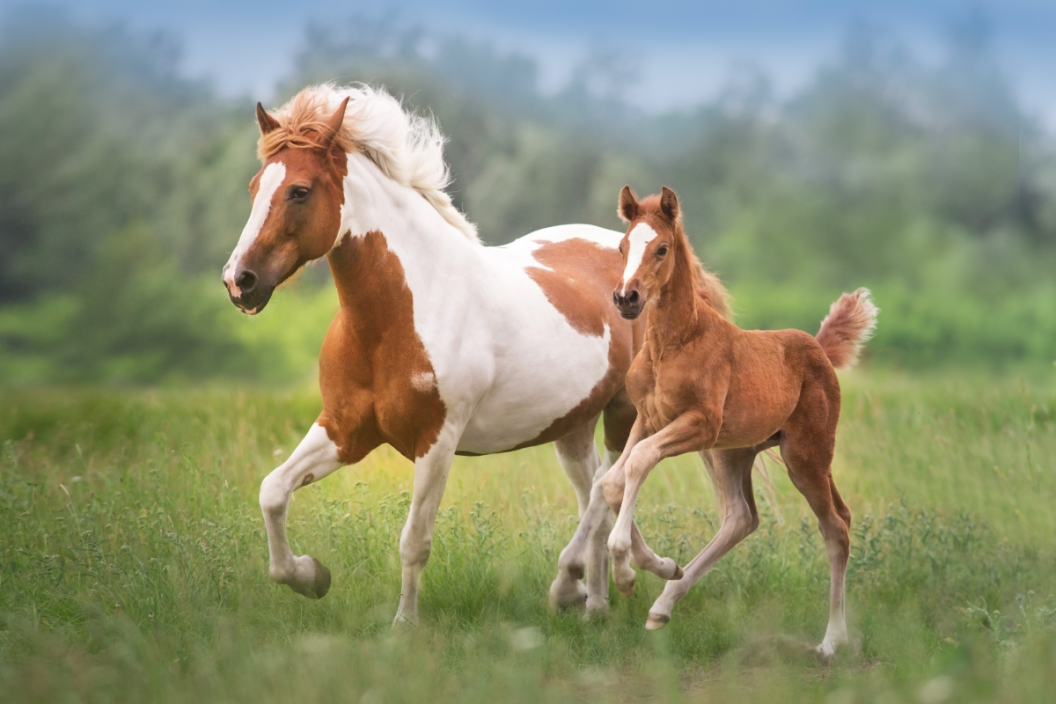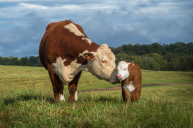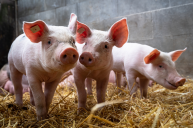Like all mammals, horses go through the process of being pregnant and giving birth to cute, little offspring. Here's everything you need to know about pregnant mares.
Mister Ed, Black Beauty, Seabiscuit; these are some famous horses from entertainment we all know and love. It's no surprise, but as a society, we do love our horses — and since as far back as we can remember, horses have been a vital part of our culture. (Take police work, agriculture, and therapy for example!)
One of the best things about our equine friends is that we can ride them; the bond between a human and their horse is priceless. Even though experts say it's generally safe and not harmful (and even beneficial in some cases) to ride a pregnant mare (mare = a female horse) during the first six to eight months, it's still important for horse owners to know about a horse's gestation period, especially if you have a broodmare (definition: a mare specifically used for breeding).
How Long Are Horses Pregnant For?
https://www.instagram.com/p/B_kwdEXjx7X/
The short answer is 11 to 12 months of pregnancy. The gestation length for horses typically ranges from 330 to 345 days, with the average gestation period being 330 days, or about 11 months of gestation. Bottom line: the average gestation period, from breeding to foaling, is 11 months.
It's important to note that there can be variations in a horse's gestation length. One of the primary factors affecting it is the breeding season: mares bred during the summer or spring months tend to have shorter gestation periods compared to mares bred in the first three months of a year. (Note that the heat cycles normally happen every three weeks during the summer and spring months.) On the other hand, your horse's pregnancy might go longer than expected. As long as your mare's gestation period goes up to about 360 days, i.e. almost a year, it's still within the normal gestation period, and you can still expect some healthy foals.
Sadly, any newborn foals that are born less than ten months are usually born unstable and, unfortunately, not likely to survive (and sometimes can result in miscarriage in the mare's uterus, leading to unborn foals).
A horse can only birth one foal per year, with most mares carrying only one foal per pregnancy — so it's as important as ever to take care of your pregnant mare and give her the proper vaccinations like deworming in the second trimester and a booster one month prior to foaling to up the antibodies. Calcium is also very important and is essential for pregnant mares.
Occasionally, you get older maiden mares, which are mares who's never had a foal. Older maiden mares are notoriously difficult to foal — with their udders usually being very small.
If you want to know exactly when your mare's foaling date (a.k.a. due date!) is, we recommend a Mare Gestation Calculator. To find out more about horse pregnancies, visit the American Association of Equine Practitioners (AAEP).
Have you had a pregnant horse before? Share your story on our Wide Open Pets Facebook page!




